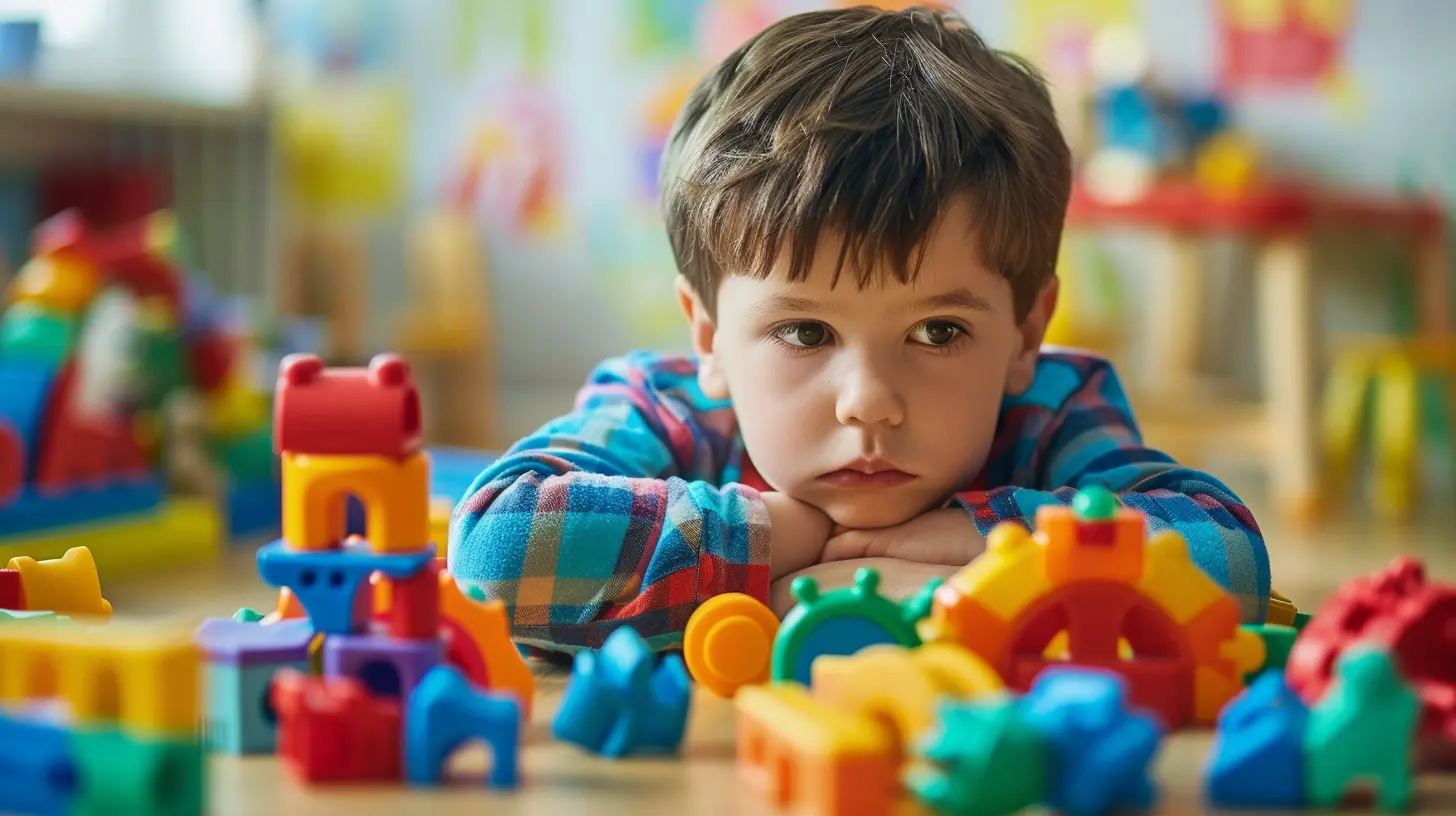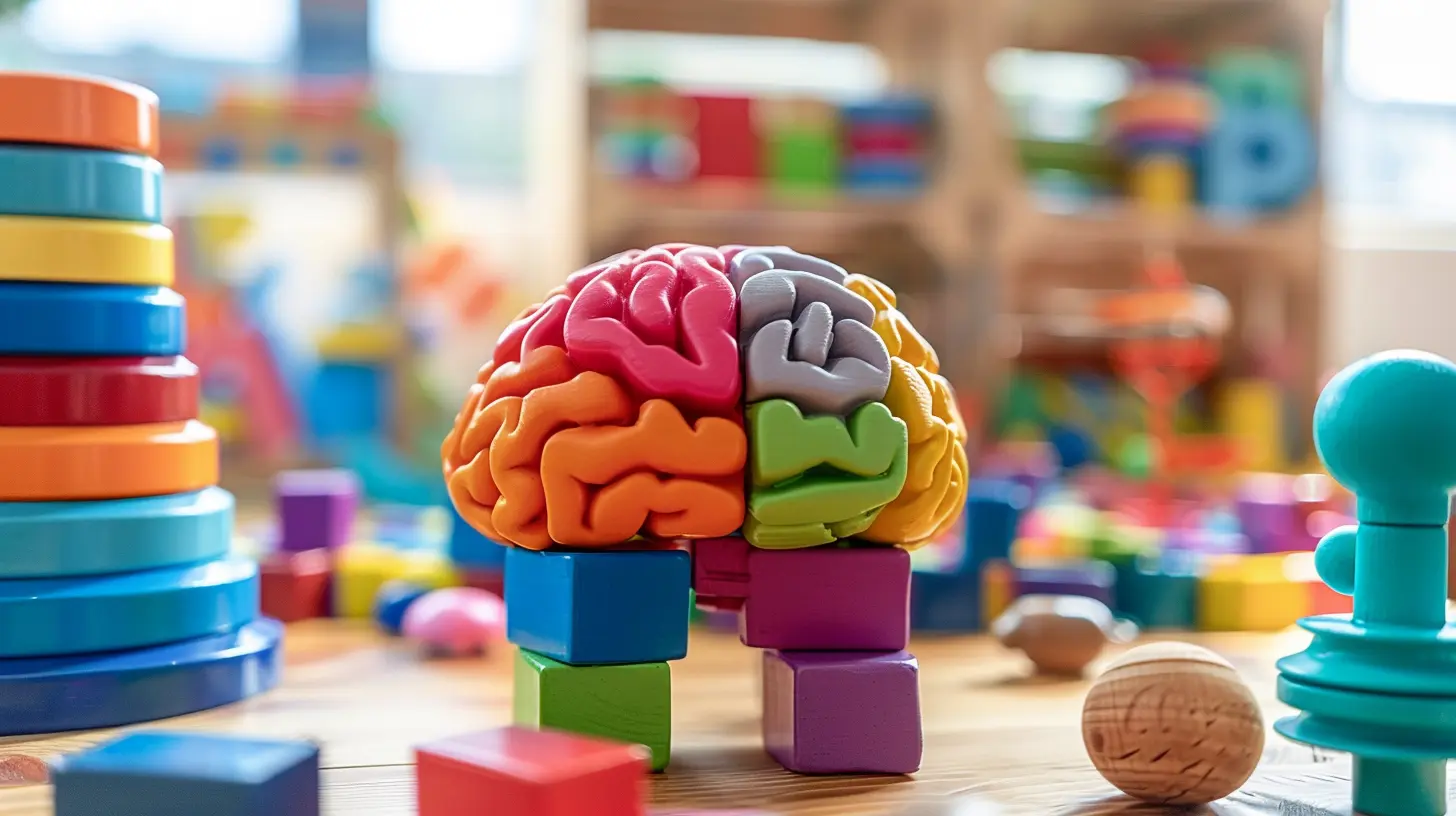How Cognitive Development Impacts Emotional Regulation
27 September 2025
Ever wondered why kids throw tantrums over tiny things while adults (mostly) keep their cool? That’s because emotional regulation—the ability to manage emotions in a healthy way—is closely tied to cognitive development. As our brains grow and mature, so does our ability to understand, process, and control our emotions.
But how exactly does cognitive development shape our emotional responses? Let's break it down in a simple, engaging way.

What Is Cognitive Development?
Cognitive development refers to how we learn, think, and problem-solve over time. It starts the moment we’re born and continues well into adulthood. Jean Piaget, a famous psychologist, identified different stages of cognitive growth, each shaping how we understand the world.These stages aren’t just about solving math problems or improving memory—they also influence how we deal with emotions. The stronger our thinking skills, the better we can regulate emotions. Let’s see how this works.

The Connection Between Cognitive Development and Emotional Regulation
Emotional regulation isn’t just about suppressing emotions—it’s about understanding them, expressing them appropriately, and bouncing back from difficulties. And guess what? All of that requires solid cognitive skills.- Self-Awareness: The ability to recognize emotions in ourselves develops alongside cognitive growth.
- Impulse Control: As the brain matures, we get better at resisting urges and reacting thoughtfully instead of impulsively.
- Perspective-Taking: A more developed mind allows us to see situations from others' viewpoints, reducing emotional outbursts.
- Problem-Solving: When we can think through challenges logically, we handle emotions better instead of just reacting.
Now, let’s dive into different stages of cognitive development and how they impact emotional regulation.

Cognitive Development Stages and Emotional Regulation
1. Infancy (0-2 years): The Beginnings of Emotion and Thought
Babies don't come into the world knowing how to regulate emotions. Instead, they rely on caregivers for help. Ever noticed how a baby stops crying when they are comforted? That’s an early form of emotional regulation—external support.At this stage, cognitive skills are just beginning to develop. Babies learn through sensory experiences and basic cause-and-effect relationships. However, they lack the mental capacity for self-regulation. Their emotions are raw, intense, and immediate. They react to hunger, discomfort, or fear without understanding what's happening.
How Cognitive Growth Helps at This Stage:
- Babies start recognizing patterns—like knowing that crying leads to attention.- As they develop memory, they anticipate comfort, which can help soothe distress.
2. Early Childhood (2-7 years): The Struggle for Self-Control
Welcome to the "why" phase—when toddlers and preschoolers question everything. Their cognitive development is advancing, but emotional regulation? Still a work in progress.Children at this stage think in very concrete terms. They struggle with perspective-taking and impulse control, which explains those dramatic tantrums in the grocery store when they can't have a toy.
How Cognitive Growth Helps at This Stage:
- Language development allows kids to express feelings instead of just acting out.- Basic problem-solving skills help them explore alternatives (e.g., using words instead of hitting).
- A growing memory lets them recall past experiences and consequences, slowly shaping better emotional responses.
3. Middle Childhood (7-11 years): The Growth of Emotional Awareness
As kids enter school age, their cognitive skills take a huge leap. They start thinking more logically, anticipating outcomes, and understanding social norms. Emotional regulation improves significantly, though they’re still refining the skill.Children at this stage begin to:
- Recognize that emotions are not permanent.
- Understand that different people have different perspectives.
- Develop empathy, making them more mindful of others’ feelings.
How Cognitive Growth Helps at This Stage:
- More advanced reasoning skills make it easier to calm down and assess situations logically.- Social comparisons help children adjust their emotional responses.
- They practice delayed gratification—learning that waiting often leads to better rewards.
4. Adolescence (12-18 years): The Emotional Rollercoaster
Ah, the teenage years—where emotions run high, and logical thinking sometimes takes a back seat. The brain is still developing, particularly the prefrontal cortex, which is responsible for impulse control and decision-making.Teenagers feel emotions intensely but may struggle to regulate them. This is often due to the gap between their emotional brain (amygdala) and their rational brain (prefrontal cortex), which is still maturing.
How Cognitive Growth Helps at This Stage:
- Abstract thinking allows teens to reflect on emotions rather than just react.- Improved long-term planning skills help them foresee the consequences of their actions.
- Increased self-awareness aids in recognizing emotional triggers.
5. Adulthood: Mastering Emotional Regulation
By adulthood, cognitive skills are at their peak, and emotional regulation should, theoretically, be well-developed. Adults can reason, analyze, and manage their emotions effectively—or at least better than their younger selves.Of course, life stresses can sometimes throw emotional control off balance, but strong cognitive skills allow adults to regulate emotions in healthier ways.
How Cognitive Growth Helps at This Stage:
- Greater impulse control leads to thoughtful responses rather than knee-jerk reactions.- Higher emotional intelligence makes it easier to navigate relationships and conflicts.
- A mature perspective helps adults see challenges as temporary rather than overwhelming.

Factors That Influence Cognitive and Emotional Development
Cognitive and emotional growth don’t unfold in a vacuum. Several factors play a role in shaping these abilities:1. Parenting and Environment
- Positive reinforcement helps children develop emotional resilience.- A stable environment supports healthy brain development.
2. Social Interactions
- Engaging with others strengthens both cognitive and emotional skills.- Learning through observation helps children model appropriate emotional responses.
3. Education and Learning Opportunities
- Exposure to problem-solving tasks enhances cognitive abilities.- Teaching emotional intelligence in schools can improve emotional regulation.
4. Genetics and Brain Development
- Some aspects of cognitive growth are hardwired, but experience plays a huge role.- Neurological conditions can impact both cognitive and emotional regulation skills.
How to Support Emotional Regulation Through Cognitive Development
Since cognitive skills and emotional regulation go hand in hand, nurturing one helps the other. Here are some ways to support healthy development:For Children:
- Encourage problem-solving rather than offering immediate solutions.- Teach emotional vocabulary so they can express feelings verbally.
- Model calm responses to frustration and stress.
- Foster self-reflection by asking questions like, “How did that make you feel?”
For Adolescents and Adults:
- Practice mindfulness to enhance self-awareness.- Develop critical thinking skills to assess emotional triggers.
- Strengthen stress-management techniques like deep breathing or journaling.
- Foster healthy relationships that support emotional well-being.
Final Thoughts
Cognitive development is like the operating system that runs our ability to regulate emotions. As our thinking skills grow, so do our abilities to understand, process, and manage emotions effectively.From the impulsive cries of an infant to the composed reasoning of an adult, emotional regulation is a lifelong journey—one deeply rooted in how we think, learn, and adapt.
So, the next time you feel overwhelmed, remind yourself: Your brain has been training for this moment your entire life. Use it wisely!
all images in this post were generated using AI tools
Category:
Cognitive DevelopmentAuthor:

Eliana Burton
Discussion
rate this article
1 comments
Derek Cook
Thank you for this insightful article! Your exploration of the relationship between cognitive development and emotional regulation highlights the importance of nurturing both aspects for healthier emotional well-being in individuals.
October 10, 2025 at 3:38 PM

Eliana Burton
Thank you for your kind words! I'm glad you found the article insightful—nurturing both cognitive development and emotional regulation is indeed vital for overall well-being.


